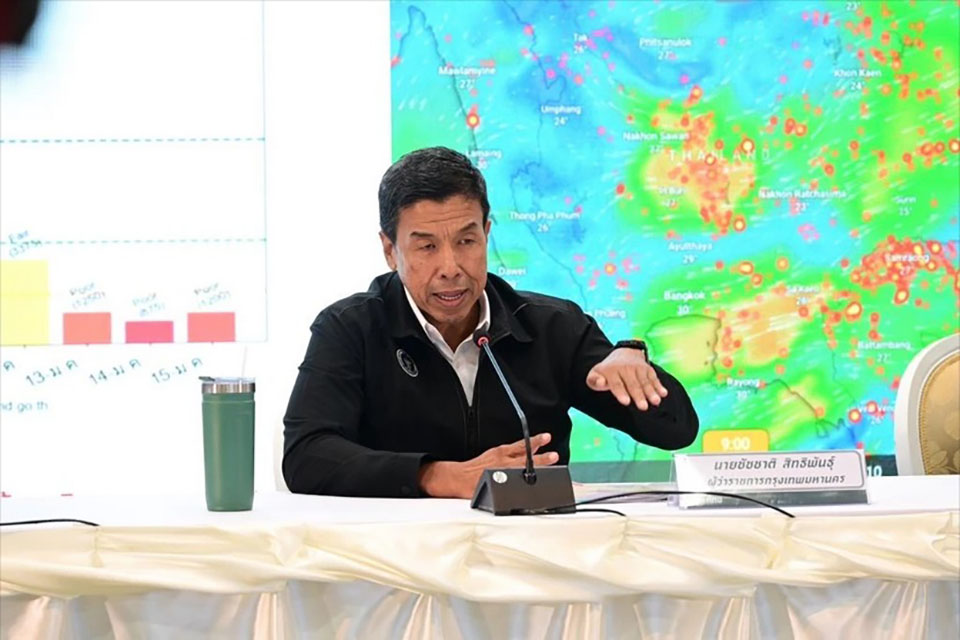
BANGKOK, Thailand – Governor Chadchart Sittipunt, along with his advisors and sustainability management team, announced measures to address the PM2.5 pollution problem at Rattanakosin Hall, Bangkok City Hall. The governor identified three main causes of PM2.5 pollution: vehicle emissions, open burning, and stagnant weather conditions that trap pollutants, creating a “dome effect.”
The current air quality in Bangkok is at an orange level (unhealthy for sensitive groups), while some districts, including Nong Khaem, Bang Bon, and Thon Buri, have reached the red level (unhealthy for all). This rise is attributed to poor air circulation from January 6–9, along with an increase in open burning around Bangkok and cross-border pollution from neighboring provinces and countries.
Comprehensive Measures to Combat PM2.5
-“This Car Reduces Dust” Campaign: Encouraging vehicle owners to change engine oil and air filters.
-Mobile vehicle inspection units and checkpoints to detect and ban black smoke-emitting vehicles.
-Free straw balers provided to farmers in Nong Chok and Min Buri districts to replace open burning of crop residues.
-Collaboration with the Department of Royal Rainmaking to conduct aerial missions to reduce dust in Bangkok’s airspace.
Emergency Measures for a Pollution Crisis
If PM2.5 levels reach red in more than five districts for three consecutive days, Bangkok will implement stricter measures. These include banning trucks with six or more wheels from entering the Ratchadaphisek Ring Road, except for those on the Green List (low-emission vehicles) and encouraging over 220 organizations, representing 84,000 employees, to participate in the Work From Home initiative.
The governor emphasized that solving the PM2.5 issue requires balancing public health concerns with economic impacts. While vehicle emissions account for over 50% of the pollution, completely banning personal vehicles is impractical due to economic and social constraints. Bangkok aims to promote sustainable, preventive measures to ensure long-term solutions to the air pollution crisis.










